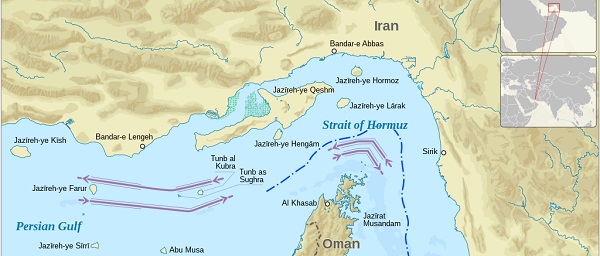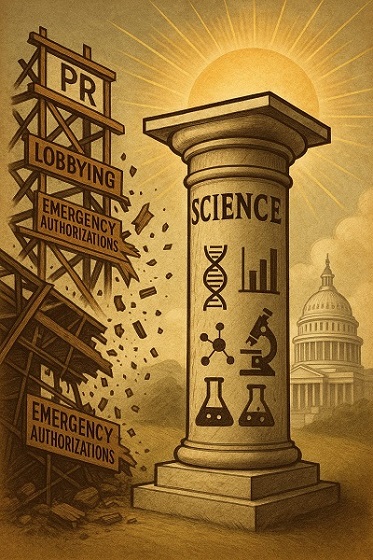Business
Canada’s critical minerals are key to negotiating with Trump

From Resource Works
The United States wants to break its reliance on China for minerals, giving Canada a distinct advantage.
Trade issues were top of mind when United States President Donald Trump landed in Kananaskis, Alberta, for the G7 Summit. As he was met by Prime Minister Mark Carney, Canada’s vast supply of critical minerals loomed large over a potential trade deal between North America’s two largest countries.
Although Trump’s appearance at the G7 Summit was cut short by the outbreak of open hostilities between Iran and Israel, the occasion still marked a turning point in commercial and economic relations between Canada and the U.S. Whether they worsen or improve remains to be seen, but given Trump’s strategy of breaking American dependence on China for critical minerals, Canada is in a favourable position.
Despite the president’s early exit, he and Prime Minister Carney signed an accord that pledged to strike a Canada-US trade deal within 30 days.
Canada’s minerals are a natural advantage during trade talks due to the rise in worldwide demand for them. Without the minerals that Canada can produce and export, it is impossible to power modern industries like defence, renewable energy, and electric vehicles (EV).
Nickel, gallium, germanium, cobalt, graphite, and tungsten can all be found in Canada, and the U.S. will need them to maintain its leadership in the fields of technology and economics.
The fallout from Trump’s tough talk on tariff policy and his musings about annexing Canada have only increased the importance of mineral security. The president’s plan extends beyond the economy and is vital for his strategy of protecting American geopolitical interests.
Currently, the U.S. remains dependent on China for rare earth minerals, and this is a major handicap due to their rivalry with Beijing. Canada has been named as a key partner and ally in addressing that strategic gap.
Canada currently holds 34 critical minerals, offering a crucial potential advantage to the U.S. and a strategic alternative to the near-monopoly currently held by the Chinese. The Ring of Fire, a vast region of northern Ontario, is a treasure trove of critical minerals and has long been discussed as a future powerhouse of Canadian mining.
Ontario’s provincial government is spearheading the region’s development and is moving fast with legislation intended to speed up and streamline that process. In Ottawa, there is agreement between the Liberal government and Conservative opposition that the Ring of Fire needs to be developed to bolster the Canadian economy and national trade strategies.
Whether Canada comes away from the negotiations with the US in a stronger or weaker place will depend on the federal government’s willingness to make hard choices. One of those will be ramping up development, which can just as easily excite local communities as it can upset them.
One of the great drags on the Canadian economy over the past decade has been the inability to finish projects in a timely manner, especially in the natural resource sector. There was no good reason for the Trans Mountain pipeline expansion to take over a decade to complete, and for new mines to still take nearly twice that amount of time to be completed.
Canada is already an energy powerhouse and can very easily turn itself into a superpower in that sector. With that should come the ambition to unlock our mineral potential to complement that. Whether it be energy, water, uranium, or minerals, Canada has everything it needs to become the democratic world’s supplier of choice in the modern economy.
Given that world trade is in flux and its future is uncertain, it is better for Canada to enter that future from a place of strength, not weakness. There is no other choice.
Business
Potential For Abuse Embedded In Bill C-5

From the National Citizens Coalition
By Peter Coleman
“The Liberal government’s latest economic bill could cut red tape — or entrench central planning and ideological pet projects.”
On the final day of Parliament’s session before its September return, and with Conservative support, the Liberal government rushed through Bill C-5, ambitiously titled “One Canadian Economy: An Act to enact the Free Trade and Labour Mobility in Canada Act and the Building Canada Act.”
Beneath the lofty rhetoric, the bill aims to dismantle interprovincial trade barriers, enhance labour mobility, and streamline infrastructure projects. In principle, these are worthy goals. In a functional economy, free trade between provinces and the ability of workers to move without bureaucratic roadblocks would be standard practice. Yet, in Canada, decades of entrenched Liberal and Liberal-lite interests, along with red tape, have made such basics a pipe dream.
If Bill C-5 is indeed wielded for good, and delivers by cutting through this morass, it could unlock vast, wasted economic potential. For instance, enabling pipelines to bypass endless environmental challenges and the usual hand-out seeking gatekeepers — who often demand their cut to greenlight projects — would be a win. But here’s where optimism wanes, this bill does nothing to fix the deeper rot of Canada’s Laurentian economy: a failing system propped up by central and upper Canadian elitism and cronyism. Rather than addressing these structural flaws of non-competitiveness, Bill C-5 risks becoming a tool for the Liberal government to pick more winners and losers, funneling benefits to pet progressive projects while sidelining the needs of most Canadians, and in particular Canada’s ever-expanding missing middle-class.
Worse, the bill’s broad powers raise alarms about government overreach. Coming from a Liberal government that recently fear-mongered an “elbows up” emergency to conveniently secure an electoral advantage, this is no small concern. The lingering influence of eco-radicals like former Environment Minister Steven Guilbeault, still at the cabinet table, only heightens suspicion. Guilbeault and his allies, who cling to fantasies like eliminating gas-powered cars in a decade, could steer Bill C-5’s powers toward ideological crusades rather than pragmatic economic gains. The potential for emergency powers embedded in this legislation to be misused is chilling, especially from a government with a track record of exploiting crises for political gain – as they also did during Covid.
For Bill C-5 to succeed, it requires more than good intentions. It demands a seismic shift in mindset, and a government willing to grow a spine, confront far-left, de-growth special-interest groups, and prioritize Canada’s resource-driven economy and its future over progressive pipe dreams. The Liberals’ history under former Prime Minister Justin Trudeau, marked by economic mismanagement and job-killing policies, offers little reassurance. The National Citizens Coalition views this bill with caution, and encourages the public to remain vigilant. Any hint of overreach, of again kowtowing to hand-out obsessed interests, or abuse of these emergency-like powers must be met with fierce scrutiny.
Canadians deserve a government that delivers results, not one that manipulates crises or picks favourites. Bill C-5 could be a step toward a freer, stronger economy, but only if it’s wielded with accountability and restraint, something the Liberals have failed at time and time again. We’ll be watching closely. The time for empty promises is over; concrete action is what Canadians demand.
Let’s hope the Liberals don’t squander this chance. And let’s hope that we’re wrong about the potential for disaster.
Peter Coleman is the President of the National Citizens Coalition, Canada’s longest-serving conservative non-profit advocacy group.
Business
Canada should already be an economic superpower. Why is Canada not doing better?

From Resource Works
Tej Parikh of the Financial Times‘s says Canada has the minerals but not the plan
Tej Parikh is the economics editorial writer for The Financial Times, a British daily newspaper. He joins our Stewart Muir for a Power Struggle interview. And we include in the following report some points from a guest column by Parikh in Canada’s National Post, which carried the headline ‘How Canada can unlock its economic superpower potential.’
Parikh begins the Power Struggle interview with this: “There’s an enormous economic potential here, very much the same geographic advantages that have underpinned America’s economic emergence over the last 100 years. . . . Given everything we understand about the advantages that countries need to grow, why is Canada not doing better economically?” He added: “When you break it down and you look at why income per capita in Canada has perhaps not increased as fast as we might expect on the basis of those advantages, it really kind of breaks down to three components. One is investment, so how much capital goes into the country?
The second is labour, and not just the amount, the size of the workforce you have, but how well you utilize the workforce. And then the third component is something that economists like to call a total-factor productivity, which is essentially your innovative ability and your ability to bring together capital and people. “And when you look at Canada as opposed to other large economies . . . you begin to see that actually there are a lot of restrictions in Canada, not just because of its vast geography but because of regulation, that it actually can’t combine its capital and labour as productively as it could.
“It’s about creating those supply chains and critical minerals that the Western world is currently short of. Given it (Canada) has these vast raw material resources, there is a massive scope for it to become even more integrated into Western supply chains in particular and to become a supplier of these things.” From Parikh’s National Post column: “The country is energy independent, with the world’s largest deposits of high-grade uranium and the third-largest proven oil reserves. It is also the fifth-largest producer of natural gas.Canada boasts a huge supply of other commodities too, including the largest potash reserves (used to make fertilizer), over one-third of the world’s certified forests and a fifth of the planet’s surface freshwater. Plus, it has an abundance of cobalt, graphite, lithium and other rare earth elements, which are used in renewable technologies. “But the nation has lacked the visionary leadership and policy framework to capitalize on its advantages.”
Watch the full interview here:
-

 Bruce Dowbiggin2 days ago
Bruce Dowbiggin2 days agoWhat Connor Should Say To Oilers: It’s Not You. It’s Me.
-

 conflict2 days ago
conflict2 days agoHow Iran Could Shake Up Global Economy In Response To US Strikes
-

 Business2 days ago
Business2 days agoFederal fiscal anchor gives appearance of prudence, fails to back it up
-

 Business2 days ago
Business2 days agoThe U.S. Strike in Iran-Insecurity About Global Oil Supply Suddenly Makes Canadian Oil Attractive
-

 illegal immigration2 days ago
illegal immigration2 days agoHeightened alert: Iranians in U.S. previously charged with support for terrorism
-

 conflict14 hours ago
conflict14 hours ago‘They Don’t Know What The F*ck They’re Doing’: Trump Unloads On Iran, Israel
-

 Banks2 days ago
Banks2 days agoScrapping net-zero commitments step in right direction for Canadian Pension Plan
-

 Bjorn Lomborg12 hours ago
Bjorn Lomborg12 hours agoThe Physics Behind The Spanish Blackout






